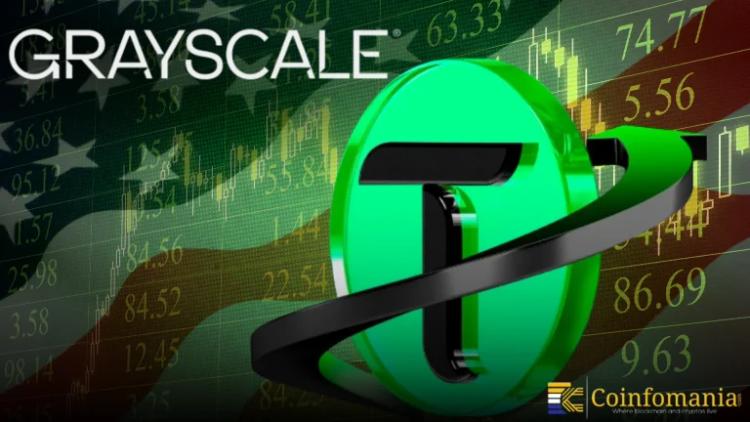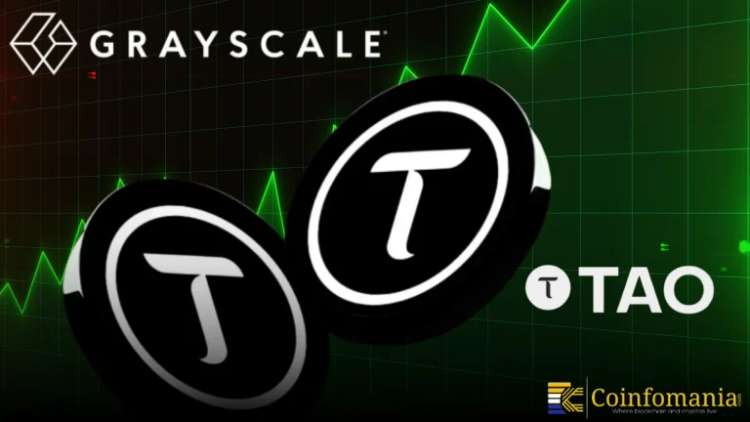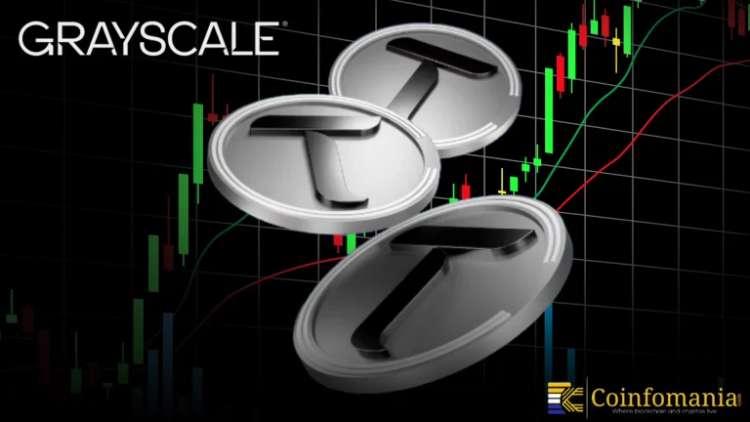TAO
As of December 31, 2025, Bittensor (TAO) is trading at approximately 304.5 USD, reflecting a -1.66% decrease from the previous close.
| Current Price | 24h Price Change | 7-Day Avg Price | Support Level | Next Resistance |
| $304.50 USD | -1.66% | $402.63 USD | $173.73 USD | $710.51 USD |
📈 Technical Analysis Summary
- Price Movement: The -1.66% decrease indicates Bearish pressure; potential uncertainty or profit-taking.
- 7-Day Average Comparison: Trading below the 7-day average ($402.63 USD); weak or consolidating trend; watch for support breakdown.
- Support and Resistance Levels: Price is above support ($173.73 USD); confirms bullish base. Room for growth before hitting resistance ($710.51 USD).
- RSI Analysis: RSI at 43.84 indicates Neutral zone; balanced market.
- MACD Analysis: Negative MACD (-8.12); suggests bearish momentum.
📊 Market Sentiment
| Indicator | Value | Interpretation |
|---|---|---|
| RSI | 43.84% | Neutral; neither overbought nor oversold |
| MACD | -8.12 | Bearish; suggests downward momentum |
| Above 7-Day Avg? | No | Indicates bearish pressure or cooling off |
| Above Support? | Yes | Suggests price stability above support. |
Bittensor Price Prediction Preview
| Forecast Range | Prediction Trend |
|---|---|
| Daily | 📉 Bearish — Caution in the short term due to weakening indicators |
| Weekly | 🔻 Weak — Risk of short-term pullback if support breaks |
| Monthly | 🚀 Bullish — TAOUSD could test $452.02 if momentum sustains |
| Yearly | 🌐 Long-Term Uptrend — Range between $414–$452 possible by year-end for TAOUSD |
Related News

Grayscale Files for Bittensor Trust as Institutional Crypto Access Broadens
Grayscale has once again positioned itself at the center of crypto investment innovation. The asset manager has filed with the US Securities and Exchange Commission to launch a product offering exposure to Bittensor’s TAO token. If approved, the proposed Grayscale Bittensor Trust would trade on NYSE Arca, marking a historic first for US-listed products tied […]
Vandit Grover
Author

Grayscale Bittensor Trust Goes Public Ahead of TAO Halving
Hanan Zuhry
Author

Grayscale Spots A Major Opportunity As Tao Halving Nears
Vandit Grover
Author

Altseason 3.0: Altcoins Gear Up for a $1.6 Trillion Market Surge
Triparna Baishnab
Author

Co-Founder Frank Schuil Announces Safello Increases Exposure to TAO, Purchasing 259.31 TAO and Selling 1 BTC in Strategic Crypto Reserve Adjustment
Emmmaculate Araka
Author
Bittensor (TAO) is a decentralized protocol designed to create a global, open-source AI network. Instead of relying on centralized entities to build and monetize artificial intelligence, Bittensor rewards contributors who provide high-performing machine learning models. Its native token, TAO, incentivizes useful AI outputs and ensures the network remains autonomous and self-improving. With a limited supply and growing ecosystem of AI-focused subnets, Bittensor is rapidly gaining traction as the AI infrastructure layer for Web3.
How Does Bittensor Work?
Bittensor operates as a decentralized machine learning network where AI models, called “neurons,” compete and collaborate across multiple subnets. Validators rank each neuron based on its output quality using a reputation system. TAO tokens are minted and distributed to the most valuable participants. Unlike traditional blockchains that secure financial transactions, Bittensor secures intelligence by rewarding useful outputs. It relies on a unique consensus called Proof-of-Intelligence and leverages peer-to-peer networking to scale AI training across the globe.
Bittensor and Other Cryptocurrencies
Feature | Bittensor (TAO) | Bitcoin (BTC) | Ethereum (ETH) | SingularityNET (AGIX) | Render (RNDR) |
|---|---|---|---|---|---|
Primary Use Case | Decentralized AI network | Digital store of value | Smart contracts & dApps | AI service marketplace | GPU-based AI rendering |
Supply Cap | 21 million | 21 million | No cap | 2 billion | 536 million |
Consensus | Proof-of-Intelligence | Proof-of-Work | Proof-of-Stake | Delegated Proof-of-Stake | Proof-of-Render |
Network Type | Custom Substrate-based blockchain | Bitcoin network | Ethereum blockchain | Ethereum-based | Ethereum + Solana |
AI Focus | Core infrastructure layer for AI models | None | Minimal (via dApps only) | Yes – deploy/buy AI services | Yes – GPU compute for AI |
Token Utility | Rewards, staking, subnet ops | Transaction fees, store value | Gas for transactions, DeFi, NFTs | Pay for AI services | Pay for rendering tasks |
Decentralization Level | High – permissionless subnets | High | Medium | Medium | Medium |
Target Audience | AI developers, researchers, Web3 projects | Investors, institutions | Developers, DeFi users | AI companies, researchers | Content creators, AI modelers |
Technology Behind Bittensor
- Subnets: Independent, domain-specific AI networks (e.g., language, vision)
- Proof-of-Intelligence: A consensus mechanism that ranks and rewards neurons based on performance
- Token Incentives: TAO rewards top-performing AI models every 12 seconds
- LayerZero Integration: Allows interoperability with other blockchains
- Decentralized Governance: Community participation through proposals and peer voting
Is Bittensor a Good Investment?
As of May 2025, TAO trades at $444.01, with a circulating supply of 8.72 million tokens. While TAO has posted modest 1-day gains of 0.62%, its real strength lies in long-term conviction rather than short-term price action.
With a market cap of $3.87 billion and a fully diluted valuation of $9.47 billion, Bittensor has already cemented itself as a leader in decentralized AI infrastructure. Its trading volume—over $118 million in the past 24 hours—shows strong liquidity relative to its size.
TAO’s tight supply mechanics, capped at 21 million, and increasing demand from subnet operators and AI researchers support its long-term upside. The project is still early in adoption, and its valuation reflects high growth expectations. As such, investors should brace for volatility—but also recognize the potential for TAO to become a cornerstone of open-source AI economies.
If TAO sustains its current trajectory, it could reach the $600–$750 range by early 2026. On the downside, key support levels lie near $380 and $310—areas to watch if momentum stalls.
Legal and Regulatory Consideration 2025
As of now, Bittensor operates in a regulatory gray zone. The protocol is fully decentralized, with no central entity controlling its AI outputs or token issuance. This makes it harder for regulators to impose direct oversight. However, as governments begin to regulate AI systems and tokenized economies, Bittensor may face compliance pressures—especially around data sourcing, misinformation risk, and model accountability. Currently, no major jurisdiction has directly flagged TAO as a security.
How to Buy and Trade Bittensor?
Bittensor’s native token, TAO, is available on top centralized exchanges including Binance, KuCoin, Gate.io, Bitget, and BingX. For decentralized traders, TAO is bridged to Ethereum-compatible chains via LayerZero, enabling DeFi access. Most trading activity is currently concentrated on Binance and KuCoin, ensuring tighter spreads and higher liquidity.
Popular TAO Trading Pairs
- TAO/USDT (Primary and most liquid)
- TAO/ETH (DeFi ecosystem exposure)
- TAO/BTC (BTC-paired market participation)
Earning Opportunities with TAO
Rather than traditional staking, TAO is earned through participation in the Bittensor ecosystem. Validators and subnet operators bond TAO to operate nodes, contribute machine learning models, and maintain uptime. Active participants are rewarded for supporting decentralized AI infrastructure.
Steps to Start Trading TAO
1. Learn the Basics
Study crypto trading essentials—understand volatility, order types, and how TAO functions within Bittensor’s AI-driven protocol.
2. Understand TAO’s Role
TAO powers the incentive layer of a decentralized machine learning network. It has utility in governance, validator bonding, and AI data contribution.
3. Fund Your Wallet
Deposit USDT, ETH, or BTC into your centralized exchange wallet (Binance, KuCoin, or others listed above).
4. Buy TAO
Use spot trading on CEXs or interact with DeFi bridges (like LayerZero) to buy TAO on Ethereum-compatible chains.
5. Secure Your Holdings
If holding TAO long-term, transfer your tokens to a cold wallet or hardware device for maximum security.
6. Explore Node Participation
Consider becoming a validator or joining a subnet to contribute compute resources and earn TAO rewards actively.
7. Stay Informed
Track Bittensor’s GitHub updates, follow TAO on social platforms, and monitor key subnet developments and proposals.
Bittensor Wallets and Security
TAO tokens can be stored in the following wallets:
- Cold Wallets: Ledger (with TAO support via custom configurations)
- Hot Wallets: Polkadot.js (via Substrate), Nova Wallet, and Talisman
- Custom CLI Wallets: For developers and node operators interacting directly with subnets
Due to Bittensor’s custom blockchain, not all mainstream wallets support TAO natively—careful setup is essential.
How to Secure Your Bittensor Holdings?
- Use hardware wallets for long-term storage
- Avoid centralized exchanges unless actively trading
- Back up seed phrases and store them offline
- Regularly update wallet software
- Node operators should use multisig and server hardening for added protection
Bittensor Adoption and Use Cases
- AI model monetization via subnets
- Domain-specific AI apps (language, image recognition, etc.)
- Censorship-resistant alternative to Big Tech AI APIs
- AI-backed tools for Web3, such as autonomous bots and smart search
- Academic and open-source AI research collaboration
Bittensor’s Future Outlook & Growth Potential
Bittensor aims to be the AI-based layer for the decentralized internet. With upcoming milestones like subnet scaling, LayerZero integrations, and real-world AI use cases, it’s well-positioned to lead Web3’s AI evolution. TAO’s scarcity and technical innovation give it a strong narrative—but execution and real-world adoption will be key to sustaining long-term growth.
Pros and Cons of Investing in Bittensor
Pros
- First-mover advantage in decentralized AI
- Fixed token supply (21 million TAO)
- Strong developer and research community
- Real utility through AI monetization and staking
- Open participation and scalable infrastructure
Cons
- High volatility and thin liquidity on some exchanges
- Still in early development stages
- Regulatory clarity is lacking
- Complex for non-technical users
- Subnet performance can vary widely
Final Thoughts
Bittensor represents a bold attempt to decentralize AI at its core. It rewards intelligence, not just computing power, and opens the door for collaborative AI innovation outside corporate walls. While still nascent, it’s a serious contender in the AI-crypto space. For investors who understand the long game and are bullish on Web3 + AI convergence, TAO is worth watching—and possibly holding.
Frequently Asked Questions
In what ways is Bittensor not the same as other AI blockchain projects?
Bittensor builds on decentralized AI networks to pay those who participate in creating and reviewing AI models, creating a peer-to-peer AI environment rather than the usual centralized one.
Does the TAO token supply affect its current price?
Because TAO’s max supply is only 21 million while its current supply is just under 9 million, dwindling numbers together with growing interest from participants may cause prices to rise.
Who are the Subnet Operators within Bittensor?
Those using specialized AI sub-networks on Bittensor can earn TAO by adding their computer power and building or annotating models for the platform.
Is Bittensor’s ecosystem only operated using decentralized methods?
Bittensor is constructed as a fully decentralized network, where both token holders and AI operators have a say in its management and administration.
In what way does LayerZero fit into Bittensor’s full system?
With LayerZero, TAO tokens can be easily transferred to various Ethereum-compatible networks, making it easier for DeFi users to access tokens and enjoy better liquidity.
Is it possible to do more with TAO than just stake and trade?
In the Bittensor network, TAO is used to fuel good work in AI, join decisions on governance and support network use.
What risks should investors consider when looking at TAO?
Given that it’s highly volatile, still in early stages and mostly uses decentralized AI, TAO is considered a speculative investment with possible regulatory risks.
What is the involvement of Bittensor’s community of developers?
The Bittensor community is gradually expanding, thanks to regular changes in the protocol, input from open-source development and active talks on forums.
Is Bittensor involved in any partnerships or integrations?
Bittensor is working with multiple blockchain and AI projects to make its network more accessible and used in a variety of ecosystems.
What are the ways I can join in Bittensor governance?
Each TAO holder can participate in network decisions and vote in crucial votes about protocol updates.